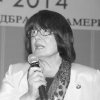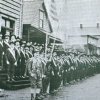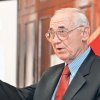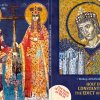Говор проф. др Јасмине Вујић одржан на прослави стогодишњице од оснивања Српске народне одбране у Америци 28. јуна 2014. г (текст је нешто проширен у односу на говор)
Ваше Преосвештенство, поштовани Оци, домаћини Ђорђе и Миро, уважени гости, даме и господо, браћо и сестре, изузетна ми је част да присуствујем овом свечаном скупу на позив господина Славка Пановића, дугогодишњег председника Српске народне одбране.
Ове године се навршава 100 година од оснивања Српске народне одбране у Америци, чији је оснивач и први председник био наш велики научник и патриота Михајло Пупин (9. октобар 1854 – 12. март 1935).
На данашњи дан (28. јун 2014) се навршава тачно 100 година од атентата на аустроугарског престолонаследника у Сарајеву, када је Гаврило Принцип из групе од шесторице атентатора (петорице Срба и једног босанског муслимана), чланова Младе Босне, убио надвојводу Франца Фердинанда и његову супругу Софију. Аустроугарска је упутила Србији прво ултиматум, који Србија није могла да прихвати, и 28. јула 1914. године Аустроугарска је објавила рат Србији.
Само дан касније, почело је бомбардовање Београда, да би 12. августа кренуо напад преко реке Дрине. Ту се десила и чувена Церска битка, која је трајала од 15. до 19. августа, када су се поражене аустроугарске трупе повукле преко Дрине. То је била прва победа Савезника у Првом светском рату. Русија је притекла у помоћ Србији, а Немачка Аустроугарској. Немачка је објавила рат Русији 1. августа, Француској 3. августа и Белгији 4. августа. Велика Британија је такође ушла у рат на страни Србије, Русије, Француске и Белгије.
Први светски рат је трајао 4 године и донео је Србији велика разарања, али и велике победе, огромне људске жртве, али и велики углед у свету. Више од 900 хиљада Срба је погинуло или умрло у овом Великом рату, што је представљало око 20% српског становништва у то време.
Михајло Пупин, који је већ тада био угледан научник и веома познат и признат у српској дијаспори у САД, усмерио је све своје снаге да помогне српском народу у отаџбини. Указом краља Петра, у пролеће 1911. године Пупин је постављен за почасног конзула Србије у САД.
У јулу 1914. године, када се већ видело да ја напад Аустроугарске на Србију неизбежан, окупио је у Њујорку угледне Србе као и младе интелектуалце и основао Српску народну одбрану у Америци и постао њен први председник. Преко Српске народне одбране (СНО) организовао је прикупљање помоћи, где су биле укључене практично све српске организације у САД. Преко 20 хиљада прилога је сакупљено за врло кратко време у 30 држава у САД, на Аљасци и у 6 провинција у Канади, укључујући 370 градова [1]. Оваква организација и несебична помоћ је могла да буде постигнута само захваљујући огромном угледу који је Михајло Пупин имао међу српском дијаспором и наравно великом патриотизму српске дијаспоре. Његовом заслугом је такође око 17 хиљада добровољаца из САД отишло бродовима да се придружи српским војницима који су се борили на Солунском фронту. Преко СНО 1916. године је организовао слање пакета српским војницима на Солунском фронту. У септембру 1915. године под његовим руководством основан је Фонд за збрињавање ратне сирочади, да би се тај фонд 1919. године претворио у Удружење за збрињавање српске сирочади. Пупин је касније у спомен својој мајци Олимпијади из личних средстава основао Фонд за школовање сиромашне српске деце у старој Србији и Македонији и то при Српској академији наука. [2]
.





